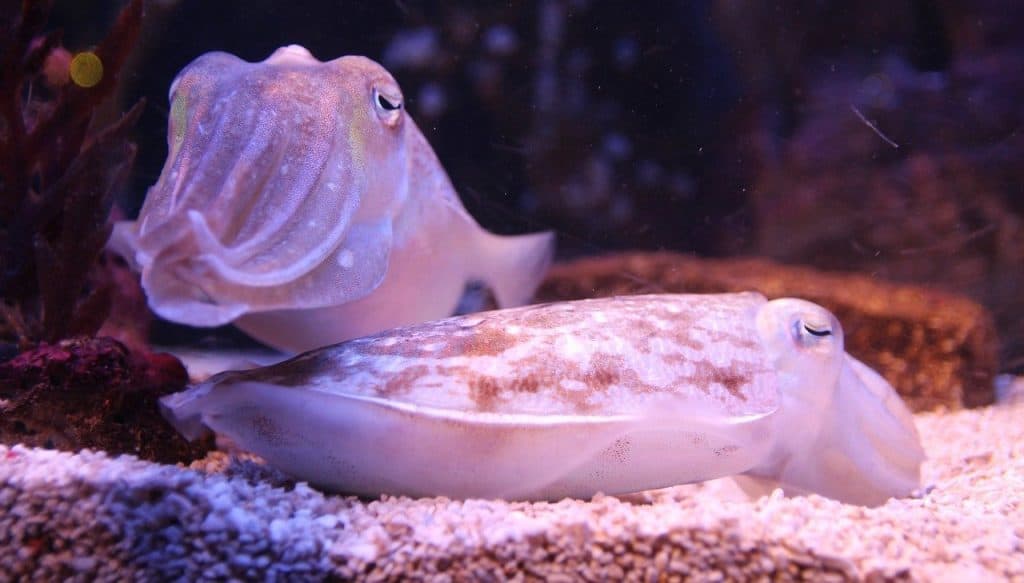Ever wondered what the reason why seafood has its particular smell and the reason behind it. This blog will talk about all the details about the fish and the smell associated with their meat.
While cooking with other meat like chicken or ground hamburger, you don’t have to worry about the smell coming from the meat except if they’ve been in your freezer for quite a while. Most of the time, you can dump the meat out of the shopper, season it, and begin cooking.
But when it comes to the fish, the characteristic odor of fish is quite ready. Fish has a genuinely characteristic odor, similar to dunk in the sea. And keeping in mind that this particularly off-putting smell is somewhat wonderful, as it appears to be bizarre that crude fish smells so solid. In contrast, crude meat from land creatures has no odor.
For what reason does fish smell so bad sometimes, and also is there any link of this smell telling us that fish has gone bad too? It just so happens; there’s a genuinely fascinating justification for that.
Table of Contents
Reason Of Characteristic Odor
Water in the untamed sea has about three percent salt by weight. Yet, the ideal percent of dissolved minerals inside a living cell is still very few than one percent. To keep up with liquid equilibrium, sea animals should fill their cells with amino acids and amines to counter the saltiness of seawater. Sea fish will, in general, depend on trimethylamine oxide (TMAO) for this reason to combat the saltiness of the water.
The smell from the fish emerges when fish are killed, and microorganisms and fish chemicals convert TMAO into trimethylamine (TMA), which emits the characteristic odor of fish.
What About Fresh Water Fishes?
Another interesting fact about the fishes is that the taste of the fishes varies based on water habitat. So the fishes that are found in freshwater don’t retain the TMAO as they don’t have a salty water environment, so there is no need to retain TMAO in their cells. This gives a significant difference to the meat of the fish as it appears to be milder and tender, and they don’t have such a foul smell as other ocean fishes. But sometimes, it has been seen that sometimes
these freshwater fishes suffer from the unpleasant, muddy areas that give off the particular smell. The kind of fishes that go through these is also called bottom feeders alike, catfishes. That particular smell is because of the two compounds, geosmin and methylisoborneol, found in blue and green algae. Also, these compounds retain in the skin and give off a dark tone to the muscles of fishes. If you want to get rid of these chemicals from your fish or want a chemical-free fish, you can pour your freshwater fish; some acidic treatment will be helpful in the breakdown of these chemicals.
When Does This Smell Start To Come?
The characteristic fishy smell starts when the fish is gotten killed and exposed to the air for quite a long time. Then those synthetic substances are exposed to the air, it starts an interaction within the body of fish which is called carboxylation.
The results of these reactions give off amines, which are the primary cause of the smell. The more opened out the fish to air will be, the smellier it becomes. However, in some cases, it has been seen that not all fishes are similarly reeking.
According to the fishermen, the chemical is generally expected in “the tissues of fin-fish, particularly of chilly water, surface dwelling ocean fishes.” So if you genuinely feel sick in foul fish, stay away from fish from the sea like haddock or cod and pick something from freshwaters like salmon or trout.
How To Know If Fish Smells Bad Or Has Gone Wrong?
Many people are concerned that if the fish or shellfish starts to smell unpleasant, has it gone wrong? In most cases, that is not the case; however, when it comes to knowing whether the fishes are good, they are still suitable for eating purposes. The only thing that will help us is to trust your instincts and go with your senses as there is a vast difference that you will get to know if fish has gone smelly or acrid. Another thing to be made sure of is that the meat of the fish should be firm, dried out, and smooth, not hard, mushy, or turning into grey.
An Effective Method To Neutralize The Fishy Smell
There’s no denying that crude fish smells very severely, yet that doesn’t mean you would prefer not to cook it. If you want to cook the fish, and it’s started to smell up your entire house, Good Housekeeping has suggested some tips for this problem as well. For that, try combining and using one oil and vinegar and allowing it to bubble in the oven. Allow it to cook a few minutes, and the smell is supposed to vanish while cooking which also helps not stink your house with the smell of fish.
Another tip comes from Epicurious. They shared with us that on the off chance that you notice your fish is beginning to smell. You need to keep away from your whole kitchen smelling up; either absorb the fish milk for 20 minutes or crush some lemon juice over the fish before you cook it. These tips will help you avoid having the fishy smell in your house and even not having the odor after cooking the meant.
Conclusion
Since you know the science behind the smell, now you can make some scrumptious fish for your family and large gatherings. Now you don’t have to say no to those who love to eat fish without worrying about the foul fish smell. Recall all of the tips mentioned above before cooking and even buying, which will help you find the right fresh fish while selecting at the store. The smellier it is, the more seasoned it is.
What’s more, on the off chance that you don’t need the fish smell to wait, toss all the fish bits out quickly and make a garbage run, so the smell doesn’t worsen than it as of now is. Also you can simply enjoy the fish meat now without worrying about the smell too.





